However, my wife will always choose something new. Always. I have to admit that I owe some culinary revelations to this habit of hers, including my addiction to sushi and a discovery of the treasure trove that is Lebanese cuisine. But to be honest, the majority of new dishes we order are disappointments that we have no desire to encounter again. Is it worth it for the rush of discovering a delicious new food? Sure. Is it enough to stop me from ordering a pulled-pork sandwich or a pad thai for the one-hundredth time? Definitely not. So what does all this have to do with writing genre fiction? Well, some might say that reading genre fiction is a bit like ordering pulled-pork sandwiches over and over, that it makes you predictable (i.e. boring). Others might add that writing genre fiction is little more than an act of trying to resuscitate long-dead tropes while trying to pass off cheap imitations as original work. Given these two stereotypical notions, especially within the writing community, there can be a lot of shame or defensiveness around reading or writing these kinds of stories. Therefore, I feel the need to present an argument in defense of genre fiction, its readers, and its writers. "Therefore, I feel the need to present an argument in defense of genre fiction, its readers, and its writers." I would love to include a comprehensive list of all that is included under the umbrella of ‘genre fiction’, but there are endless branches and sub-branches which spiral down toward infinity in fractal patterns. Some of the most popular are Romance, Westerns, Mystery, Horror, Thrillers, Fantasy, and Science Fiction. If you are a writer or reader of any genre, or aspire to be one, this rant is for you. (And if not, feel free to go read a dictionary…)
So I’ll just go ahead and say it straight: I write Fantasy. I write cursed swords and magical monsters and medieval feasts with calorie counts high enough to kill an olympic weightlifter. I don’t have a BA in History, in Poetry, or in Literary Criticism (though I’m sure those are all great degrees to have) and I don’t aspire to be published in a literary journal. My aim in writing is not to win an argument or to show off my intellectual prowess, and it is certainly not to win prestigious literary awards to line my shelf with. "I write Fantasy. I write cursed swords and magical monsters and medieval feasts
"My highest aspiration as a writer is this: to write the book that people keep on that extra-special place on their shelf, the book whose pages are wrinkled and stained from use..." I write Fantasy because I strive to create the kind of stories I want to read. I want adventure. I want magic. And most of all, I want worlds unbounded by the shackles of our present reality or belaboured past. That is the kind of story I crave when I feel numbed by the drivel of the day-to-day, when I feel crushed between the cogs of ‘the system’, or when the itch for adventure is so insistent I can no longer ignore it. Of course, that doesn’t mean I won’t reference history or challenge real political or philosophical ideas; what it means is that I have a safe place to explore and create, a cushion between raw reality and a mental other-space where it is easier to think, explore, and feel. "That is the kind of story I crave when I feel numbed by the drivel of the day-to-day, when I feel crushed between the cogs of ‘the system’, or when the itch for adventure is so insistent I can no longer ignore it." Despite my love of Fantasy, many writers of genre fiction get it wrong. Really wrong. Their plot lines get tangled in tropes, their characters end up skewered on tired stereotypes, and the overcooked hyperbole of their world causes it to collapse in on itself. In fact, these fumbled attempts at imitation, rather than creation, are what give genre fiction a bad name in the writing world. So where does good genre fiction start? Well, it starts with a promise.
"Promise is the foundation of genre fiction... You must fulfill the promise of your genre But don’t stop there. Give your genre fiction something extra. Zest it with a character or an idea that will catch your reader off-guard, that will make them think, that will stay forever impressed on their minds. Give them the rush and the escape that they have felt before while reading that genre and then dazzle them with something they never expected.
So don’t be ashamed of writing or reading genre fiction. If you are a writer then start with the promise and build off of that foundation. If you are a reader, don’t settle for dry characters or soggy plot lines. Now, you’ll have to excuse me because I am really craving a pulled-pork sandwich... For more advice about writing genre fiction, Joshua recommends listening to the Writing Excuses podcast.
1 Comment
"My favorite magical creature is Al mi’raj from Arabic poetry. It is also known as the Wolpertinger in German mythology, the Jackalope in American myth and the Lepus Cornutus from medieval and early Renaissance times." I like stories when seemingly weak or underdog characters win in unexpected ways. I’m not particularly religious, but even as a kid I liked the David and Goliath story. Speaking of Goliath- the mythology there is of the Nephilim- the giants who were apparently offspring of demons and humans. That’s interesting. It was when I was a little kid and to me, it probably always will be. I’m a lover of myths that attempt to explain life to believers. There’s a creature from the Ewe tribe of Togo and Ghana called the Adze. The Adze are shape shifting vampires and evolved as a way to warn against the deadly effects of mosquitos and malaria in the region. "If I had to be best friends with a villian, I would choose the Fratelli family from Goonies." If I had to be best friends with a villian, I would choose the Fratelli family from Goonies. They were such a bumbling group of silly meanies. I write Middle Grade and Picture Books, so it follows that I would like this group of greedy criminals from a smash hit kids movie. I especially loved Sloth Fratelli but he was a good guy, wasn’t he? I drink an unnatural amount of coffee while I write. I recently upgraded to a Keurig after a decade of using the same drip coffee maker. Now, I can have a hot cup - fresh every time I need a bathroom break. It’s kinda funny- I was gifted a box of mixed flavor coffee from my wonderful husband and now I rotate through cinnamon, vermont maple, hazelnut, southern pecan and blueberry vanilla and I love it. "I drink an unnatural amount of coffee while I write." I often offer to read rough manuscripts for fantasy fiction and one piece of feedback I often give (and sometimes get!) is that the narrative doesn’t feel ‘real’. How do you manage to connect with your characters and express their thoughts and emotions to readers in an authentic way? Well, thank you for this question because it implies that I know how to make a character come to life and feel ‘real,’ jumping off the page. I am not sure I always do this. There are times that I’ve reread my work and felt the feelings that the characters are reported to be feeling. I’ve cultivated those moments by writing about something that I have a personal, visceral connection to. Feelings are triggered by sensory experiences and if you can tap into the sensory experiences of your reader and make them feel the feelings that the characters are feeling from the lens of their own visceral life experiences...it becomes real for them. They feel like they “know,” the character. Using the five senses can get you where you need to be quickly. Also using observations about human nature and human behavior can create a connection and give insights into how a character might be feeling. The reader might find themselves thinking “I do that too.” Many authors branch out from writing to provide other services related to the process of making books as editors, graphic designers, and online forum hosts; I call these ‘writing adjacent’ skills. In addition to your writing, you also design incredible author logos to help writers present their brand effectively. What advice do you have for writers who are thinking of exploring the option of offering services using their ‘writing adjacent’ skills? I think that writing adjacent services help you to build an author platform. If you are launching a writing career out of obscurity - offering a service can help others get to know who you are and where you sit within the writing community. You can cultivate friendships, readership and writing adjacent customers in this way. When it comes time to enter into the querying trenches, having a following of some kind is important. How important? The blog subscribers, twitter followers or insta numbers as a platform are a mystery to most of us, but a general, strong effort to get your name out there is valuable and it shows. It shows you have staying power and that you are willing to work for your place in the industry.
There is an origin story for the bunny in The First Easter Rabbit narrated by Burl Ives from 1976 but I wanted to give my story a classic feel and tie it to another famous rabbit story. I find retellings satisfying because the reader gets to re enter a world they’ve loved before and learn a little bit more about the beloved characters. They get to relive the joy. My version of The Velveteen Rabbit, The Girl Behind the Magic sticks to Margery Williams’ original and has enough of her story for modern children to receive the wisdom that Williams intended about ‘realness,’ coming from the pure source of love. However adding a few more layers of contrast helps this story come to life in a fresh new way. Also there is a little girl in this story and I think adding little girls to stories that once had boys as the only protagonist is a fresh take too. "However adding a few more layers of contrast helps this story come to life in a fresh new way. Also there is a little girl in this story and I think adding little girls to stories that once had boys as the only protagonist is a fresh take too. " You are also a writer of short stories and in your lyrical piece The Hope Goblin, a young girl named Isabelle learns to confront a wicked, bullying goblin. The themes of building one’s own self-confidence and self-image are apparent throughout the rollicking tale. On that topic, how do you feel about instructive literature vs. escape fiction? Where is the line for you as a writer between stories that teach and stories that entertain? I love escapism as a reader. As a writer, I must be true to my roots, and instructive literature comes out in me in earnest. I was an English teacher overseas in the Peace Corps, Uzbekistan and then also independently in China. I taught 8th grade writing in Texas as well as ESL to adults and kids. If teaching is breaking something down to its simplest components to be able to build- students in tow, a thing to its theoretical completion- this is how I approach most things in life. I am a parent and I utilize those skills. I love to cook and paint abstract pieces and I do graphic design. I use the skill of looking at the building blocks and ingredients to get to a desired result in those areas too. I think this is why I like writing for kids. Simplifying may seem just that...simple...but it’s a lifetime thus far of developing the skill of breaking things down in order to teach it... I think I bring this skill to the table as a writer too. "Simplifying may seem just that...simple...but it’s a lifetime thus far of developing the You have an impressive compendium of mythological creatures on your website, including the little known fairy pig from the Isle of Man known as the Arkan Sonney. What draws you to these creatures and in what ways have other writers responded to your work on that collection?
"We all have similar fears and insecurities too and you find them personified in many of the creatures of myth." Authors from other countries have contacted me and asked when I am going to do an article on a creature from their culture. I am slowly working through an alphabetical list and so many have said they will be patient until I get to theirs! Others have reached out and thanked me for expanding past what they can find on Wikipedia. I try to cross reference and give examples from several sites so that I am not just replicating what is already easily accessible on the internet. What also seems to be helpful is talking about where the mythological creature has shown up in American pop culture. I find that advertising and product naming ventures pull from International myth and folklore a lot. "I try to cross reference and give examples from several sites so that I am What can you tell us about your most recent project? Do you have a few smaller stories on the go or are you working on something big? I am currently seeking representation for a #STEM, PB series and am very excited about the process. I have a MG Contemporary Adventure based on Aztec Mythology that I am trying to find a home for as well and am also continually working on short stories and creature articles for my blog. Last, but not least, where can readers find more of your work and stay up to date on your latest publications? Find A.R. Jung's adaption of Margery Williams’ The Velveteen Rabbit on Amazon: The Girl Behind the Magic.
In the past few years you have published several books, been an active contributor in academic circles, and engaged a large audience through social media. Do you set a strict schedule to maintain this level of productivity or do you find other ways to sustain your work? I have a bullet journal. It is not very decorative, but it is great for making checklists, and I like checking things off (yeah, I’m an overachiever). I read a certain amount of stories each day with my breakfast, and most of my blogging and social media posts are scheduled for specific days. It also helps that I do a lot of the storytelling research purely for fun. Sometimes I just feel like looking up folktales about a topic, or from a place, and I enjoy going down the research rabbit hole. It’s one of the things I do for fun. "I have a bullet journal. It is not very decorative, but it is great for making checklists, and I like checking things off..." Your work on folktales from around the world spans both continents and centuries. Is this work driven primarily by personal passion or do you hope that your translations become contributions to the ever evolving conversation on globalization? It is mostly personal passion. I love learning about cultures through their stories. I started the “Following folktales around the world” reading challenge a few years ago, and I still have about 40 countries left to read folktale collections from! As for contributions: With my books I hope to bring Hungarian folktales to English-speaking audiences and storytellers, because they are not very well represented on the English language folktale market. On the flip side, I translate a lot of tales into Hungarian so that Hungarian audiences can have access to them as well. "With my books I hope to bring Hungarian folktales to English-speaking audiences and storytellers, One of your first books was Tales of Superhuman Powers: 55 Traditional Stories from Around the World. Today more than ever, North Americans are flocking to the theater to watch movies about superheroes and traditional story-telling media, such as comic books and graphic novels, are becoming popular again. Given your work in this field, what do you think draws people to stories about superheroes? Is it human nature? Is it a part of our mythos or culture? Is there perhaps something psychological at work?
"My personal favorite thing about these “superhero” tales is teamwork. Earlier this year you released a book titled Forum-Based Role Playing Games as Digital Storytelling in which you describe an emergent form of digital storytelling facilitated through online platforms. Through this experience you discovered “a subculture of unbound creativity” as people wrote novel length descriptions of fictional characters and experience that they lived through these digital worlds. As a professional story-teller yourself, what drew you to engage with and study these emerging communities?
And the stories that come out of it stay online, and you can go back and read them for fun, or out of nostalgia. There are sites where I have been active for 8-10 years, and the stories still keep surprising and entertaining me. I love creating them in cooperation with others, rather than just writing things alone. In your 2018 publication Dancing on Blades: Rare and Exquisite Folktales from the Carpathian Mountains, you translate the tales of Anna Pályuk, a Rusyn woman who married into a Hungarian family. I find myself challenged by the task of ‘crossing cultures’ as I work with Icelandic source material from a different culture and time. How did you preserve the essence of Anna Pályuk’s stories while translating them for a modern reader? Were there any guidelines or strategies that helped to guide your process?
Joseph Campbell believed that common connections existed between stories from many parts of the world and summarized some of the key aspects of those similarities in what he called the Heroic Journey. Do folktales from around the world share much in your experience or have you found them to be highly distinctive to the culture they were first told in? I have a bone to pick with the Hero’s Journey. For one, it only fits a sub-category of folktales, usually known as wonder tales or fairy tales. The more one digs into different kinds of traditional stories, the less the theory holds up. Plus, as a storyteller, I tend to focus on how the story is embellished, rather than the basic plot. A lot of tales can be boiled down to “someone gets into trouble, then gets out of it”, but let’s be honest, that is not what makes one tale more compelling than another. There are tale types that exist all around the world, but I only ever really liked one or two variant of them and the rest just didn’t click, because of small details. "The more one digs into different kinds of traditional stories, the less the theory holds up. Where can readers find more of your work and stay up to date on your latest publications? I regularly blog through my website and I have a professional Facebook page. You can also follow me on Twitter.
|
AuthorJoshua Gillingham is an author, editor, and game designer from Vancouver Island, Canada. Archives
April 2022
Categories
All
|



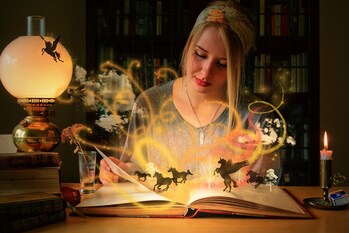

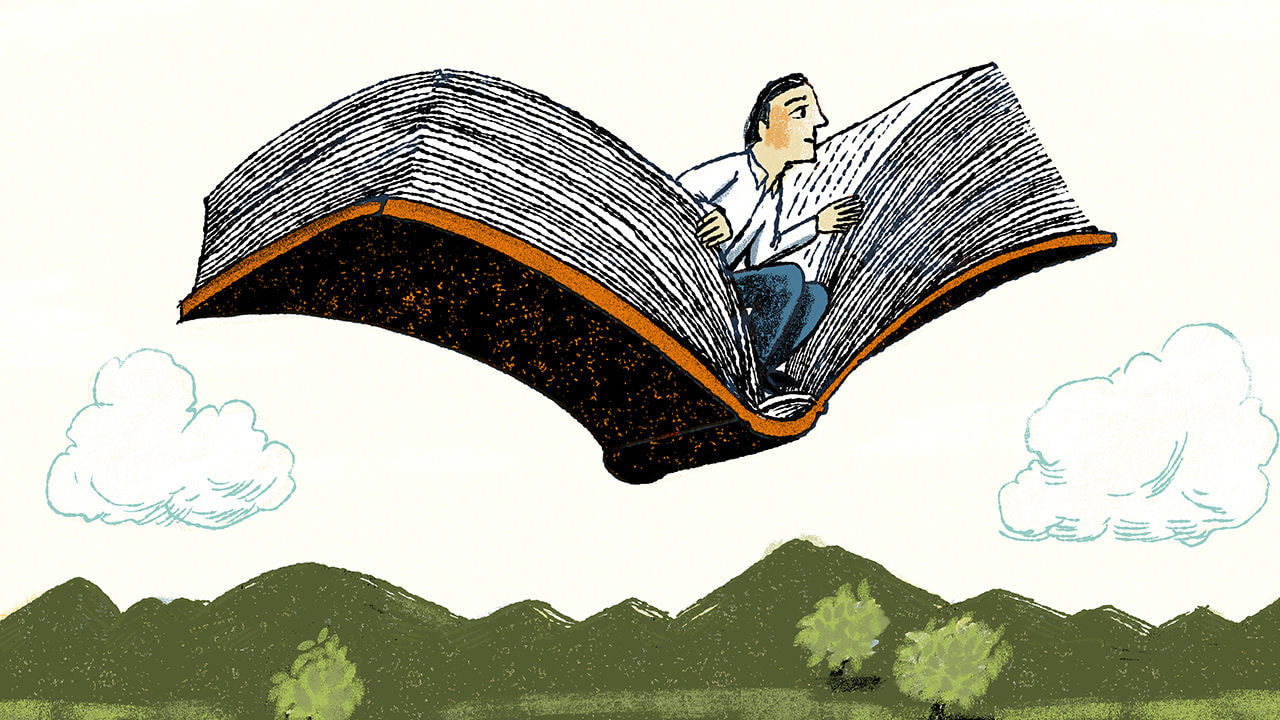


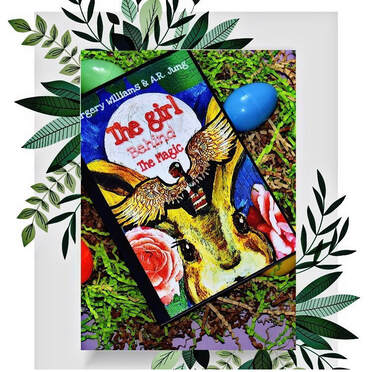
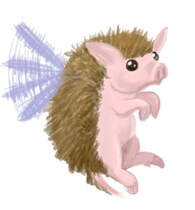
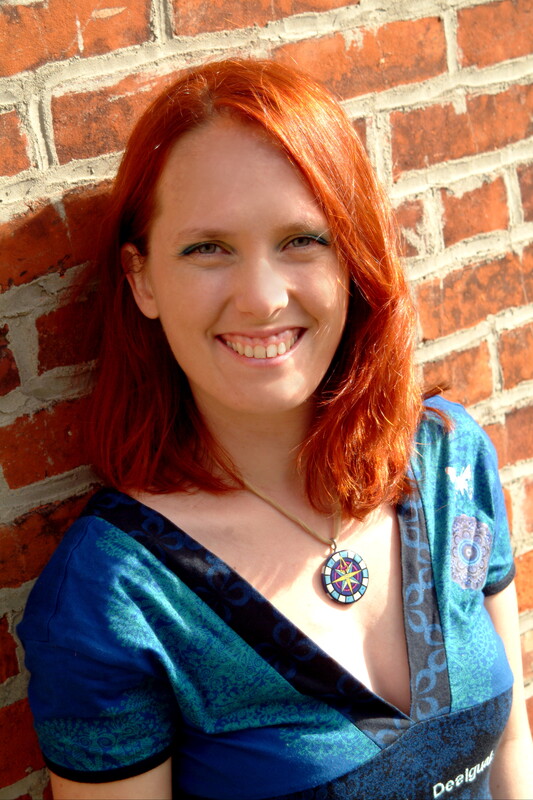
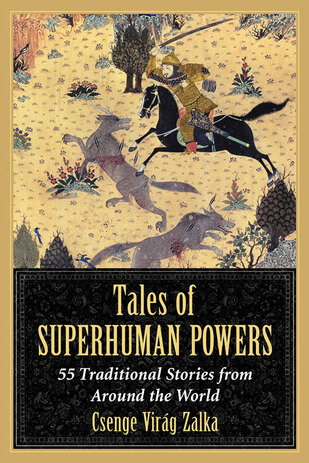
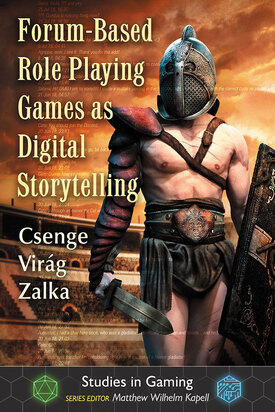
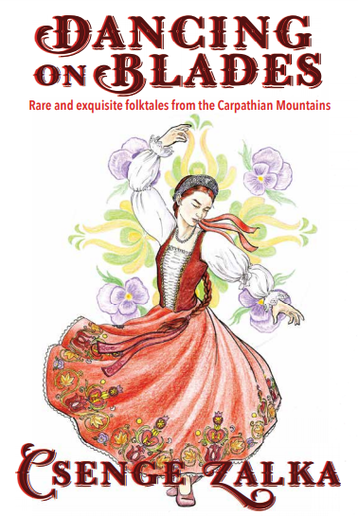
 RSS Feed
RSS Feed
